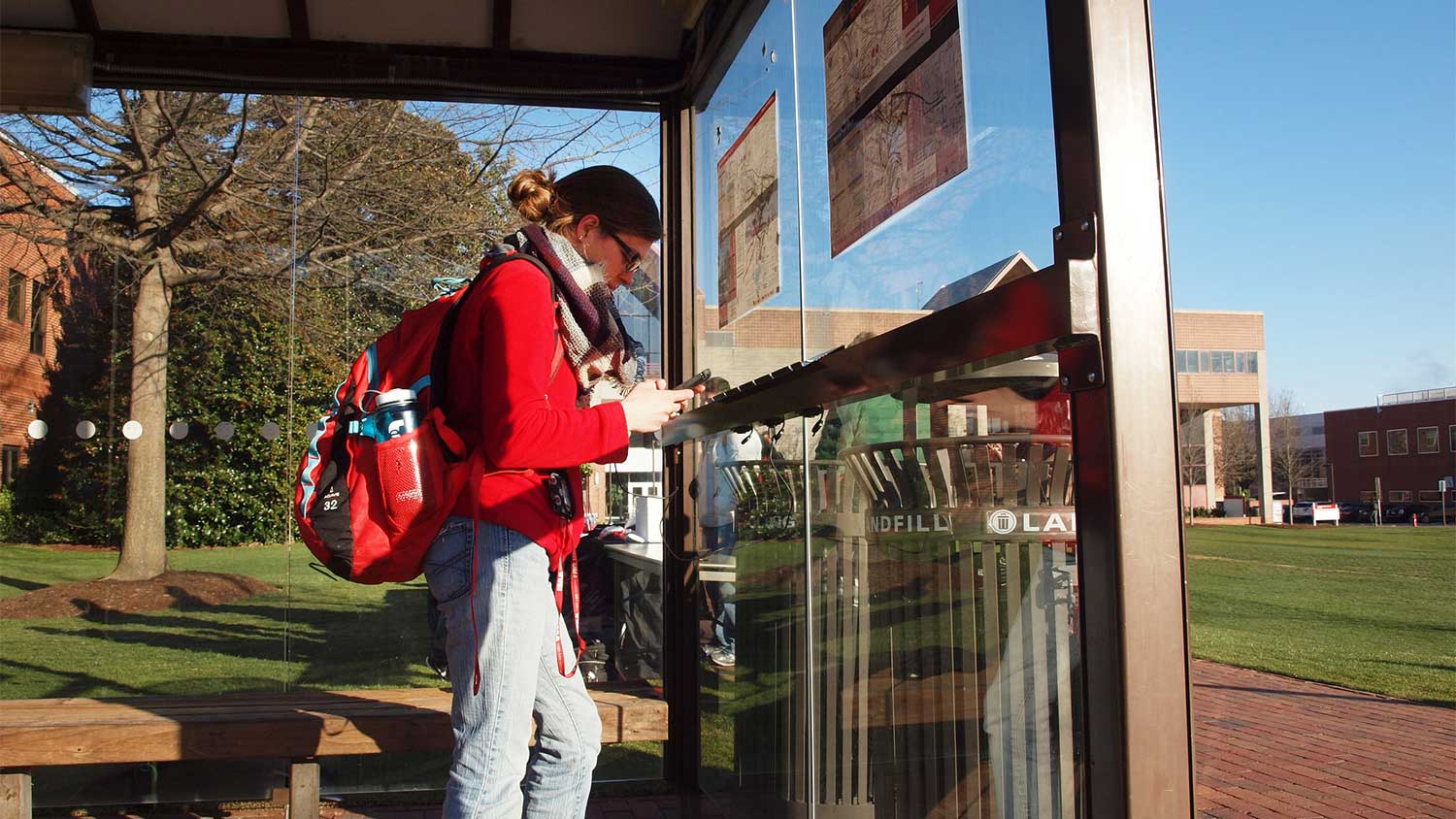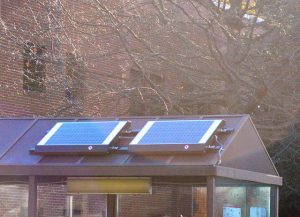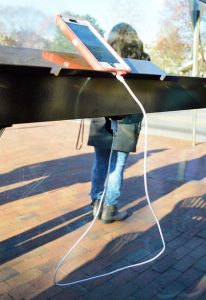Campus Welcomes First Bus Stop With Solar Power

Waiting for NC State’s Wolfline campus bus and notice that your cell phone battery is almost depleted? If you happen to be at the Dan Allen Drive bus stop near Witherspoon Student Center, you can recharge with free renewable energy courtesy of a new solar-powered charging station.
Bring your own USB charging cable to connect to the system, which is powered by two 160-watt photovoltaic solar panels on the bus shelter’s roof. The system includes 8 batteries, which store enough charge to last overnight and for limited periods of cloudy weather.
“The solar bus stop saves energy, demonstrates renewable energy and provides convenient charging access to students,” said textile engineering student Christian Rust, who led the effort to add the charging station to campus.

Rust is part of the NC State Stewards, a sustainability student leadership program that received a grant from the NC State Sustainability Fund to install the charging station.
The bus stop is the latest in a series of solar charging options on campus. After seeing the student enthusiasm surrounding the installation of solar charging station on patio umbrellas outside of Tucker Residence Hall and under a sculpture outside of James B. Hunt Jr. Library, the NC State Stewards brainstormed other ways for solar to create convenient power options for students.

Because many students ride the Wolfline campus bus system, the Stewards chose to focus on adding solar to a campus bus stop. They evaluated many bus stops across campus, settling on the Dan Allen Drive location due to its popularity and lack of trees that block sunlight.
Located along a busy corridor, the charging station improves visibility of sustainability efforts among pedestrians, drivers and the more than 1,200 people who board the Wolfline weekly at the Dan Allen bus stop.
“This project continues to place sustainability right in front of students and continues the movement toward a more sustainable campus,” Rust said. “We hope that this enhancement to the bus shelter will encourage more campus community members to take advantage of the alternative transportation options available on campus and enhance their rider experience.”
Original plans called for an electronic dashboard with real-time bus location information but cost prohibited the addition. Throughout the year-long project, the Stewards worked closely with University Transportation and the Office of the University Architect and also collaborated with Students for Sustainable Solutions, FREEDM Systems Center, University Sustainability Office and Capital Project Management.
“This is a great example of a successful progression from student-cultivated idea to tangible product that all students will have the opportunity to enjoy,” Rust said.
- Categories: